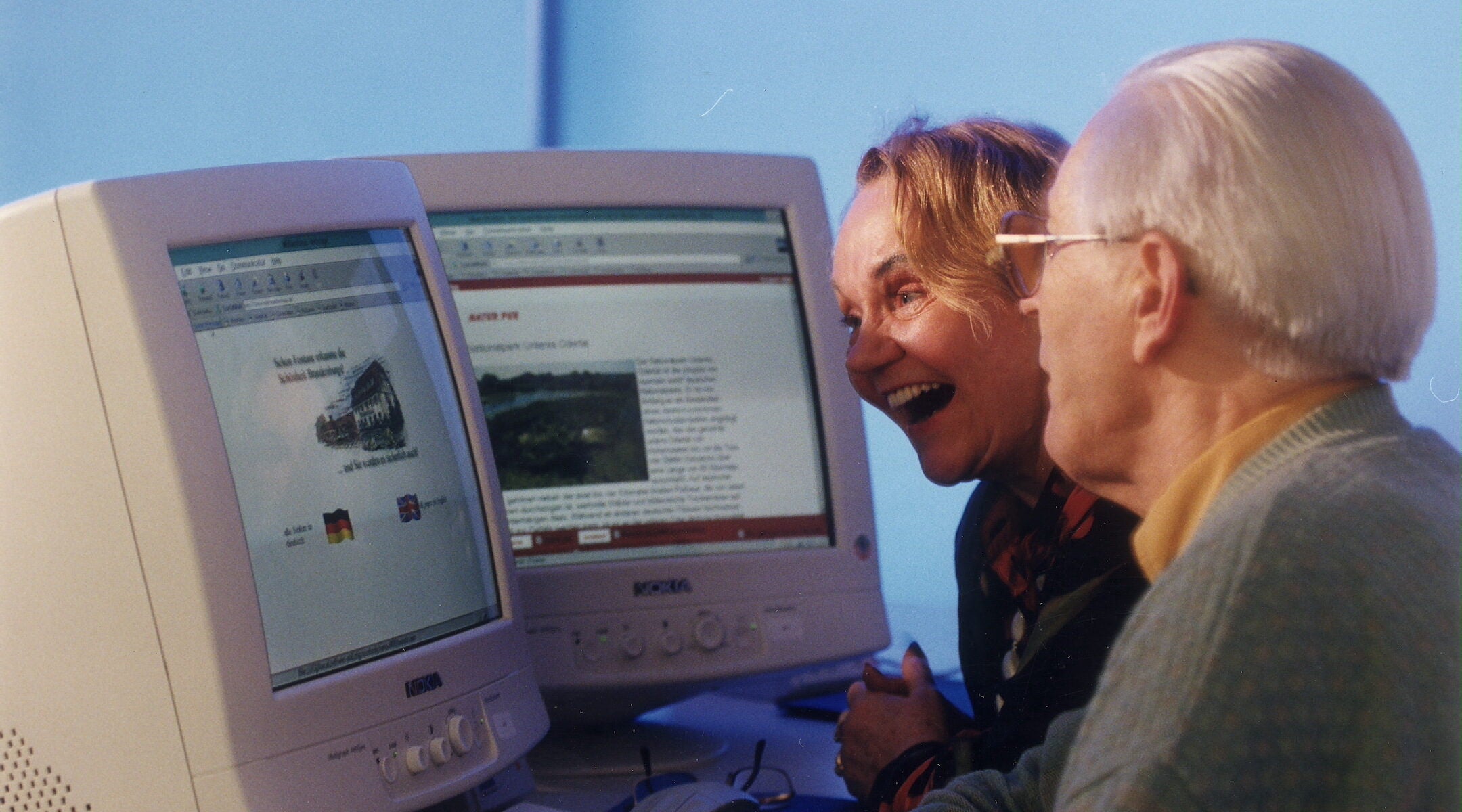Much has been said of the Internet’s ability to build community and bring people together from disparate parts of the globe.
For Jews finding themselves isolated this Passover — confined or otherwise disconnected — the Internet offers a valuable means of allowing people to express their commitment to Jewish tradition through “virtual” seders.
In recent years, an increasing number of Jews have been observing Passover online, and this year there are a variety of ways for Jews to make connections with nothing more than a keystroke and click of a mouse.
On America Online, the Jewish Community Online forum (AOL keyword: Jewish community) is planning a series of Passover activities in its Cybershul, an online non-denominational “shul” that conducts services on various Jewish holidays.
In the weeks leading up to Passover, several rabbis will host online “chats” to discuss Passover preparation and the meaning of the holiday.
A couple of days before Passover, Jewish Community Online will host a “model seder” providing a step-by-step walk-thru of the Passover ritual meal.
Then, on the first and second seder nights of Passover (March 31 and April 1), the site will host an online seder in a virtual auditorium where the “audience” is placed at the bottom of a split screen and the seder leaders appear on the top. Pictures, sounds and audience responses are all integrated into the service, which can accommodate up to 100 people.
“There are many Jews who learn about the rituals by watching others ask questions or have their hand held as they are walked through the experience that they then can implement offline,” said Anne Ludden, chat coordinator for Jewish Community Online.
“Jews rediscovering their roots, converts and Jews who are geographically isolated or in ill health get the educational and community support and education that they are otherwise unable to experience.”
The participants come from varying religious background, and Ludden said it is not unusual to have Reform, Conservative and Orthodox Jews all participating together.
“People can participate worldwide on equal terms,” she said.
For those seeking a more traditional service, Temple Emanu-El in New York City is planning a worldwide Cyber Seder broadcast for a fourth consecutive year.
The audio-only broadcast, which is accompanied by images from the historic Haggadah from the Klau Library of the Reform movement’s Hebrew Union College in Cincinnati, features the congregation’s rabbis, cantor and schoolchildren reciting and singing traditional prayers and songs.
Temple officials say their initial Cyber Seder transmission in 1996 marked the first formal religious service ever broadcast over the Internet.
During the past three years, the broadcasts have reached more than 1 million people in 71 countries, and coordinators expect hundreds of thousands to tune in once again this year.
“Seder should be with family, seder should be with fellow Jews, but sometimes many of our people find themselves in remote parts of the world, in remote parts of even our own country, where there is not a Jewish community, where they are alone, and so there can be some taste of the Passover experience on our Web site,” said Rabbi Ronald Sobel, senior rabbi at Temple Emanu-El.
Sobel said the response in years past has been overwhelmingly positive, with Jews living in places such as western Canada, Sri Lanka and rural areas in Montana sending e-mails expressing gratitude that they, too, could celebrate.
“We’ve even heard from non-Jews as well expressing their appreciation for having learned something,” he said.
The one-hour broadcast will begin at 12 p.m. on March 31 to coincide with sundown in Israel and will be repeated every hour for 24 hours to allow people in all time zones to celebrate.
To participate, Web surfers must have a modem, speakers, and a copy of RealPlayer (available for free at http://www.real.com). The broadcast can be accessed through the temple’s Web site at http://www.emanuelnyc.org.
The Internet provides a variety of other tools for Passover planning and education.
Passover sites run by Virtual Jerusalem (http://www.vjholidays.com/pessach/ home.htm) and Jewish Family & Life! (http://www.happypassover.com) offer features such as message boards, Haggadah reviews and discussions of Passover issues — from family experiences to vegetarian meal plans.
And for Jews living in remote places searching for a real live seder, Virtual Jerusalem is helping people locate places to go through an international “seder sign-up” at http://www.vjholidays.com/pessach/seder.htm.

Help ensure Jewish news remains accessible to all. Your donation to the Jewish Telegraphic Agency powers the trusted journalism that has connected Jewish communities worldwide for more than 100 years. With your help, JTA can continue to deliver vital news and insights. Donate today.
The Archive of the Jewish Telegraphic Agency includes articles published from 1923 to 2008. Archive stories reflect the journalistic standards and practices of the time they were published.




